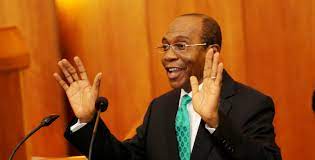
Emefiele Approved Payment of $6.2M for International Election Observers – Ex-CBN Controller

Ogau Onyeka Michael, the first prosecution witness in the EFCC’s case against the former Central Bank of Nigeria (CBN) Governor, Godwin Emefiele, at the Federal Capital Territory High Court, Abuja today, revealed shocking details of how Emefiele allegedly authorised the payment of $6,230,000 in cash for international election observers during the 2023 general election.
Michael, a former branch controller of the CBN in Abuja, testified before Justice Hamza Muazu. He disclosed that the payment request came to his office on January 8, 2023, with documents approved by Emefiele himself. These documents purportedly instructed the disbursement of the hefty sum in cash for election observers.
According to Michael, the request was channelled through the banking services department, bearing the signature of the Director of Banking Services.
It instructed the branch controller to pay the specified amount to a staff member of the Secretary to the Government of the Federation (SGF) under the guise of election observance expenses. The memo also allegedly stated that the funds should be refunded in the second quarter of 2023 by the Federal Ministry of Finance.
Furthermore, Michael testified that the documents included approvals from the former SGF and the President of the Federal Republic of Nigeria, in addition to Emefiele’s endorsement.
He stated that he processed the documents and forwarded them to the head of the banking services unit for payment, which was subsequently made in cash on April 8, 2023.
During the trial, the prosecution sought to tender six documents as exhibits but encountered objections from the defence regarding the authenticity of two photocopies.
Consequently, the defence argued against the prosecution’s request for a 30-minute adjournment to secure the original documents from the CBN complex.
After considering both sides, Justice Muazu adjourned the proceedings until February 13, 2024, for continuation.
Recall that Emefiele is facing a 20-count amended charge, including allegations of corrupt advantages, conspiracy, criminal breach of trust, forgery, and obtaining by pretences, all related to the purported $6.23 million payment.
About The Author
Related Articles
Asake Sets New Billboard Afrobeats Record as Chart Presence Grows
Asake has further cemented his place as one of Afrobeats’ most dominant...
ByWest Africa WeeklyJanuary 29, 2026Nigerians Lament PayPal’s Return as Old Wounds Resurface
PayPal’s reentry into Nigeria through a partnership with local fintech company Paga...
ByWest Africa WeeklyJanuary 29, 2026Tanzania Eyes Gold Sales as Aid Declines and Infrastructure Needs Grow
Tanzania is weighing plans to sell part of its gold reserves to...
ByWest Africa WeeklyJanuary 29, 2026Mali Tightens Grip on Explosives Supply With New Majority Stake
The Malian government has taken majority ownership of a civil explosives manufacturing...
ByWest Africa WeeklyJanuary 29, 2026











